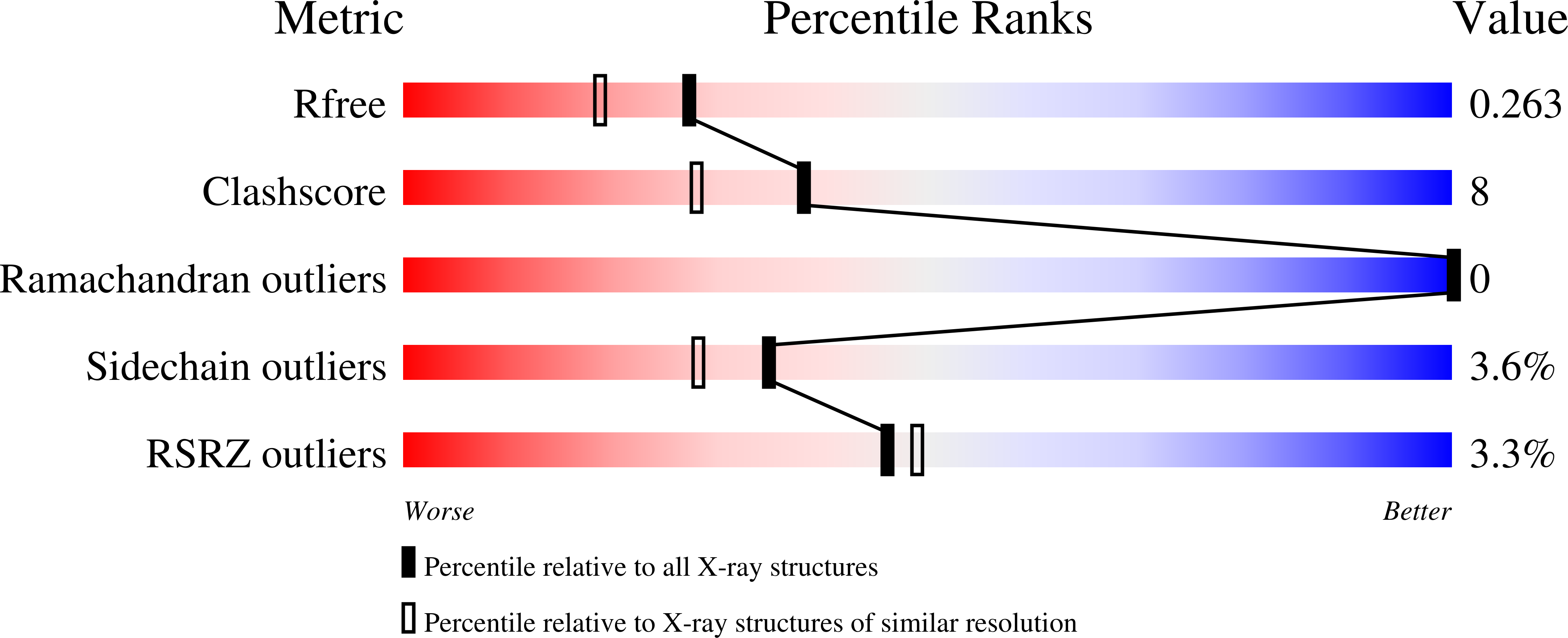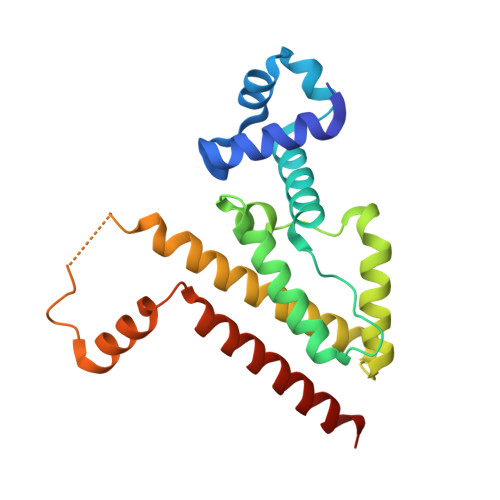Structural origins for selectivity and specificity in an engineered bacterial repressor-inducer pair.
Klieber, M.A., Scholz, O., Lochner, S., Gmeiner, P., Hillen, W., Muller, Y.A.(2009) FEBS J 276: 5610-5621
- PubMed: 19712110
- DOI: https://doi.org/10.1111/j.1742-4658.2009.07254.x
- Primary Citation of Related Structures:
3FK6, 3FK7 - PubMed Abstract:
The bacterial tetracycline transcription regulation system mediated by the tetracycline repressor (TetR) is widely used to study gene expression in prokaryotes and eukaryotes. To study multiple genes in parallel, a triple mutant TetR(K(64)L(135)I(138)) has been engineered that is selectively induced by the synthetic tetracycline derivative 4-de-dimethylamino-anhydrotetracycline (4-ddma-atc) and no longer by tetracycline, the inducer of wild-type TetR. In the present study, we report the crystal structure of TetR(K(64)L(135)I(138)) in the absence and in complex with 4-ddma-atc at resolutions of 2.1 A. Analysis of the structures in light of the available binding data and previously reported TetR complexes allows for a dissection of the origins of selectivity and specificity. In all crystal structures solved to date, the ligand-binding position, as well as the positioning of the residues lining the binding site, is extremely well conserved, irrespective of the chemical nature of the ligand. Selective recognition of 4-ddma-atc is achieved through fine-tuned hydrogen-bonding constraints introduced by the His64-->Lys substitution, as well as a combination of hydrophobic effect and the removal of unfavorable electrostatic interactions through the introduction of Leu135 and Ile138.
Organizational Affiliation:
Department of Biology, Lehrstuhl für Biotechnik, Friedrich-Alexander University, Erlangen-Nuremberg, Germany.
















